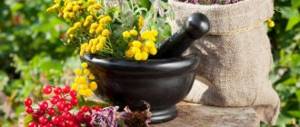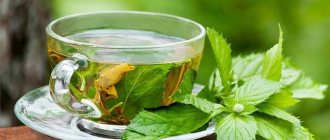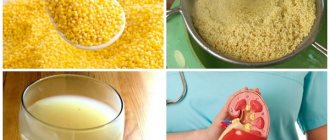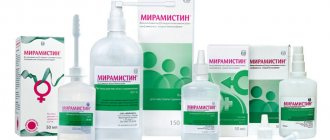The treatment of cystitis should be approached with full responsibility. Often, in addition to medications, doctors also prescribe special drinking diets, pharmaceutical teas for cystitis and other traditional medicine.
Many urologists believe that an integrated approach to the treatment of inflammation of the bladder mucosa is the basis for successful recovery and prevention of subsequent relapses.
Green tea for cystitis
If you have cystitis, your doctor will prescribe plenty of fluids (at least 2 liters of fluid per day). At this time, the consumption of alcohol, carbonated drinks, citrus juices, coffee, and black tea will be excluded: the tannins contained in it will have an aggressive effect on the weakened tissues of the mucous membranes. Therefore, in addition to clean water, compotes and berry fruit drinks, herbal teas will definitely be included in the diet. They have a diuretic effect, have the properties of relieving inflammatory processes and even suppress the further development of bacteria.
In this case, special attention should be paid to pure green tea without additives .
Bacteria that cause cystitis react to the presence of polyphenols (biologically active chemical compounds of plant origin) in the drink. During treatment for cystitis, you can even replace water with it (in consultation with your doctor).
Herbal tea Kidney
It is widely used both in the treatment of inflammation in the urinary tract and to eliminate the inflammatory process of various origins in the kidneys, male and female genital organs. Ingredients of plant origin have a beneficial effect not only on the genitourinary system, but also on the general condition of the body and immune system. The collection includes:
- Plantain;
- Horsetail;
- Peppermint;
- Corn silk;
- knotweed;
- Chamomile;
- Dandelion officinalis;
- Black elderberry;
The kidney collection must be brewed for half an hour, filtered and cooled. Three times a day, half an hour before meals, you need to drink half a glass of the prepared infusion. The course of treatment depends on the disease, its degree and the presence of complications.
Beneficial properties of tea, does it help against cystitis, and how?
After consulting with a specialist, you can choose a number of medications that are suitable for yourself. There are a lot of recipes, but you shouldn’t use them all at once. At the same time, a patient on a diet needs some variety in food and drink. Thus, you can drink weakly brewed green tea, sometimes replacing it with other herbal infusions and mixtures.
Everyone should have heard about the positive properties of green tea: it increases the body's protective functions, is a source of antioxidants, helps the liver fight the effects of harmful substances, and even slows down the aging process. Green tea can saturate the body's tissues with moisture even more effectively than water does. Thus, the body is cleansed, which is especially useful for cystitis: tea helps to get rid of pathogenic bacteria as soon as possible, being an “assistant” to the main medicine.
Medicinal
There are pharmacy options for urological drinks.
Renal
The product is used to cleanse the urinary organs of excess salts. The recommended course of treatment is at least 2 weeks. Herbal tea is prescribed to people with chronic inflammatory process in the kidneys, since this pathology often provokes an exacerbation of cystitis.
Diuretic
Phytonephrol is an effective remedy in the fight against cystitis. The tea contains the following medicinal plants: bearberry leaves, mint and calendula.
The drug is available in the form of filter bags.
The drug is available in the form of filter bags. The drink is recommended to be consumed 20 minutes before meals.
Monastic
The healing elixir of Father George includes more than 10 medicinal plants. The product has diuretic and antimicrobial effects. It has virtually no contraindications.
Indications for use
Pharmacies sell a wide variety of herbal infusions that have indications for use in the case of cystitis. The drugs are collected from different herbs, most of which, however, “overlap” among the compositions of these drugs. You can also prepare the fees yourself.
Herbs have irreplaceable properties that affect the following symptoms:
- Painful sensations.
- Insignificant volume of urination (in comparison with the liquid drunk),
- Burning at the end of urination.
Phytotherapeutic drinks in the form of kidney teas, no matter what mixture they consist of, will always contain magnesium, zinc, iron, potassium, cobalt - elements that take part in alkalizing urine, flushing the kidneys and removing both salts and bacteria that contribute to the development of the disease.
Signs of cystitis
Not everyone knows what signs indicate the onset of the disease. For many women, cystitis begins with nagging pain in the lower abdomen, burning or cutting sensations after urination. Some people even after urinating feel as if the bladder has not been completely emptied.
Treatment of this disease must begin as soon as possible - to do this, visit your doctor and follow all the instructions that he deems necessary to prescribe in your case. If the disease is advanced, antibacterial medications will be prescribed. Most women prefer to combine treatment with medications and folk remedies - this way recovery occurs faster. But before using home remedies, you should still consult a doctor - not all drugs are as harmless as they may seem.
For example, a heating pad can be used only in cases where no traces of blood are found in the urine. Warm baths with chamomile, pine needles, and various herbs are considered relatively safe. Treatment for women can also be carried out using dry and steam baths. It is better to find out which methods are right for you from your doctor.
Treatment of bladder inflammation with baths is best combined with drinking a variety of drinks that have a diuretic and anti-inflammatory effect. These can be a variety of infusions, decoctions; herbal tea is very popular. To prepare it, you can buy a mixture at the pharmacy or make it yourself if you have medicinal herbs at home.
Contraindications
It is important to know that not every type of drink will be equally useful: their properties are expressed to varying degrees. Therefore, there are some contraindications for use that should be discussed with your doctor. Prohibitions on use are not specific to any case and are not included in a separate list. This is explained by the fact that contraindications regarding tea for cystitis relate not to the disease itself, but specifically to the drink:
- It should not be tightly brewed.
- Citrus additives are not allowed (except for a few drops of lemon - which can be found in some recipes, no more)
- The herbal tea purchased must be of high quality and not contain additional flavorings.
- Avoid adding sugar to the drink.
Pharmaceutical herbs
If you are taken by surprise by cystitis, and there are no remedies at hand in your home medicine cabinet, then the pharmacy has a fairly wide selection of kidney teas. You can find the following herbal preparations:
- nephrophyte;
- phytonephrol;
- cystophyte;
- kidney herbal tea;
- brusniver;
- lingonberry leaf;
- orthosiphon staminate leaf;
- herbal tea drink for cystitis;
- collection for bladder diseases;
- the grass is half burned.
It is imperative to seek qualified medical help. After a thorough examination and tests, the doctor will recommend suitable treatment.
How to drink tea correctly if you have cystitis
In addition to prior consultation with a doctor, a patient who has begun treatment for cystitis with herbs should consider the following points:
- The ratio of dry tea base and boiling water should be no less than 1:10 by weight, that is, strong tea leaves are not allowed.
- The tea is infused for at least half an hour (some herbs are recommended to be infused for 1 hour), then the decoction is filtered through cheesecloth.
- Tea is drunk in small portions.
- Herbs collected and dried independently should be thoroughly washed and chopped before brewing.
- The drink is drunk in small portions before meals (unless other recommendations are included in the finished pharmacy recipe).
What herbs are used, their benefits
An abundant drinking regime can be organized on the basis of folk remedies. The composition and properties of individual herbs differ somewhat from each other.
- Bearberry is a medicinal plant that has an antiseptic effect.
- Licorice root has an anti-inflammatory effect and can be taken as the disease progresses.
- Juniper contains beneficial vitamins and oils. It is also known for its soothing, diuretic and disinfectant properties.
- Birch leaves are an antiseptic, relieve inflammatory reactions, accelerate healing, keep the body in good shape, and reduce pain. They are also able to cleanse the bladder of bacteria and germs.
It is important to know! Any herb for such a disease speeds up the treatment process and prevents complications.
High-quality kidney collection, prescribed for cystitis, supports immunity. The choice of the most effective remedy should be agreed with your doctor.
Recipes
Among the many recipes for brewing tea for cystitis, you can identify several of the most common:
- Traditional green tea. Take 2/3 tsp. (without a slide) tea leaves (necessarily high quality) and pour 1 tbsp. slightly cooled boiling water (about 90°C). Pure green tea does not need to be steeped for 30 minutes and filtered. It brews for 5-7 minutes.
- Watermelon tea also has many positive reviews in the fight against illness. You need to take a quarter of a medium watermelon, chop it (along with the rind), put it in a saucepan, add 1 glass of water, add 1 tsp. sugar and boil. Then cook, stirring, until the crusts soften. After removing from heat, add 0.5 liters of boiling water and 0.5 tsp. green tea. Leave for 30 minutes. The drink will turn out quite tasty, and you can drink it a little all day long.
- Bearberry is one of the most astringent herbs in nature, due to its high content of tannins. This ensures its direct effect on diseases of the genitourinary system. 2 tsp leaves or inflorescences should be poured with 1 tbsp. water and boil for 10-15 minutes. You can take this medicine in an amount of no more than 3 glasses per day.
- Decoctions of fennel and St. John's wort have earned many positive reviews. Their effectiveness will be higher when combined with lingonberries: pour 2 tbsp into a glass of boiling water. mixture and place in a water bath for 30-35 minutes. Then add another cup of boiling water and cool.
- A very affordable drink can be made from dill seeds. 1 tbsp. Grind the seeds and pour a glass of boiling water. Let it brew for 40 minutes, strain and take 0.5 cups before meals.
- A drink with cranberries has proven itself well: you can simply add a few berries to your tea, or brew them separately.
We should not forget that herbal teas only work in conjunction with medications and are used under the supervision of a specialist.
(
2 ratings, average: 3.00 out of 5)
Causes and therapy
The cause of cystitis is infection with pathogenic microorganisms and pathogenic infection.
The disease most often affects women due to the physiological structure of the urethra. The wide and short urethra and proximity to the anus create the risk of easy entry into the urethra of E. coli, which is considered the main culprit of inflammation. The disease develops quickly, manifested by pain and pain when urinating, chills, and a constant urge to go to the toilet.
Antibiotics and antimicrobial agents are usually used to treat the disease.
The use of remedies containing medicinal herbs at the first stage of the disease helps to quickly stop inflammation, eliminate painful symptoms and eliminate the disease.
Therapy for pathology is aimed at eliminating the source of pathology: sexually transmitted infections or opportunistic microorganisms that are activated against the background of weakening of the body.
Infection and swelling of the bladder mucosa is caused by:
- pain during bowel movements;
- discomfort in the lower abdomen, in the perineum;
- chills;
- state of fatigue.
Conventional drug therapy for pathology involves prescribing:
- antispasmodics that relax the muscles of the bladder and ureters;
- analgesics and painkillers;
- antibiotics and antimicrobial drugs;
- antifungal compounds;
- diuretics.
Recipes for various teas to treat the bladder
To prepare teas, tinctures and decoctions, the main thing is to use proven herbs and plants. These include: mint, lingonberry, watermelon, chamomile, fireweed, ginger, cranberry, dill. These products are suitable for use by both women and men.
Watermelon tea
Take a piece of watermelon, the peel and pulp will do. Place the finely chopped ingredients in a saucepan, adding 20 g of sugar.
Pour 100 g of boiled water into a container. After boiling, another component is added - tea.
Remove from heat, cover and leave for about 30 minutes.
This drink prevents the development of urethritis and is able to restore the alkaline balance.
Mint drink
It is better to collect mint during the flowering period; you can also use another method - purchase finished products. Add 20 g of mint to 2 liters of water. Put on fire.
As soon as the liquid boils, remove and wait until it cools a little. Then strain. Consume 200 g after each meal.
Chamomile tea
If the disease is severe, then you need to reduce the content of dangerous toxins with the help of chamomile infusion. You will need the plant itself, as well as coltsfoot. After boiling, cook for about an hour.
Infuse the decoction for 30 minutes. After this time, it is worth straining and then transferring to a glass container.
Drink 1/4 cup of chamomile drink every hour.
Blooming Sally
In order not to lose the beneficial properties of tea, you need to prepare it correctly:
- For half a liter of boiling water - 10 g of plant.
- Cover the contents with a lid.
- Leave for 15 minutes.
- After this time, shake and strain.
The shelf life and shelf life are high, since the composition contains essential oils.
In case of illness, the remedy will help if you drink a freshly prepared drink.
Cranberry tea
You need 5 g of cranberries per liter of water. It must first be crushed. After insisting, you can begin treatment.
Lingonberry tea
To prepare it you need berries, in any form. 100 g of fruits and leaves are mixed and then filled with hot water. It is worth insisting for at least 30 minutes. The drink replaces regular black, red or green tea, and is recommended for cystitis. You can add honey or lemon to the lingonberry broth.
Dill seed tea
To prepare the tea, you need to pour boiled water over the dill seeds, waiting 15 minutes before ingesting. Take 30 g before meals.
Ginger tea
Grind ginger into porridge. Add lemon juice and honey to the resulting consistency. To fill with water. Leave for at least an hour. It is allowed to use at any convenient time. But doctors recommend gradually increasing the amount of drink.









